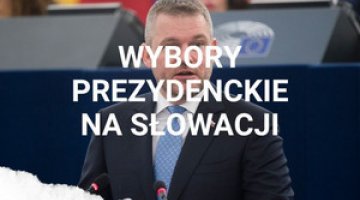Gazprom’s negotiations with Eustream on Nord Stream 2
Cooperation: Szymon Kardaś
On 30 June, Russia’s Gazprom announced it had struck a deal with the Slovakian gas network operator, Eustream, on the use of its pipelines to transport gas from Nord Stream 2. The Slovak side has not confirmed this information, but it has stated that it is pleased to hear Russian assurances of the long-term use of the Czech and Slovak gas pipeline systems and of the maintenance of the functionality of the inlet from Ukraine to Slovakia also if the gas pipeline running through the Baltic Sea is built. Gazprom and Eustream are bound by the terms of a transit contract until 2028. The contract provides for 50 billion m3 of natural gas to be delivered annually and contains a ship-or-pay clause (it guarantees 100% income regardless of the real transit level).
Commentary
- Gazprom’s announcement of the deal with Eustream fits in with the Russian diplomatic and propaganda offensive linked to the Nord Stream 2 project. One of its elements are talks with representatives of the states and firms critical about the project but whose stance may change if they receive an advantageous offer of co-operation from Gazprom. The examples include talks between the ministers of foreign affairs of Russia and Hungary (25 May) or the talks between President Vladimir Putin and the Italian prime minister Mateo Renzi and representatives of Gazprom and Italy’s Eni during the international economic forum in St. Petersburg (16–18 June). At the same time, there have been cases of information being manipulate. One example can be found in the fact that Wintershall, OMV and Gazprom publicised that the Polish side was allegedly interested in importing Russian gas via Nord Stream 2.
- There is currently no proof confirming the existence of a deal between Gazprom and Eustream concerning the use of the Slovak gas pipeline network to send gas from Nord Stream 2. However, there can be no doubt that Russian-Slovak talks concerning this subject are underway, and the fact that Slovakia has not denied Gazprom’s announcement of the alleged deal suggests that Bratislava is interested in negotiations. Most likely, Slovakia’s goal in the talks is to maintain the present level of income from gas transit beyond 2028 (the income goes to Eustream, and indirectly to the Slovak budget). In turn, Russia’s goal may be to renegotiate the contract with Slovakia, for example, by reducing the ship-or-pay level after 2019, i.e. after the announced end of Russian gas transit via Ukraine to the EU.
- The information on Eustream’s talks with Gazprom on Nord Stream 2 and the suggestion that there is a deal between the two firms call into question Bratislava’s previous declarations and argumentation concerning the project. Over the past few months, Slovakia has been one of the fiercest critics of the Nord Stream 2 project, proof of which included statements from Slovak politicians and representatives of Eustream. In this criticism, Bratislava was supported by the Slovak Vice-President of the European Commission, in charge of Energy Union. Visible progress in the Nord Stream 2 project and unclear perspectives for EU institutions to counteract its implementation may, however, convince the Slovak side to change its stance, i.e. to turn the volume down on its criticism of Nord Stream 2 and to focus on minimising the losses this project will inflict on Eustream and the state budget.





